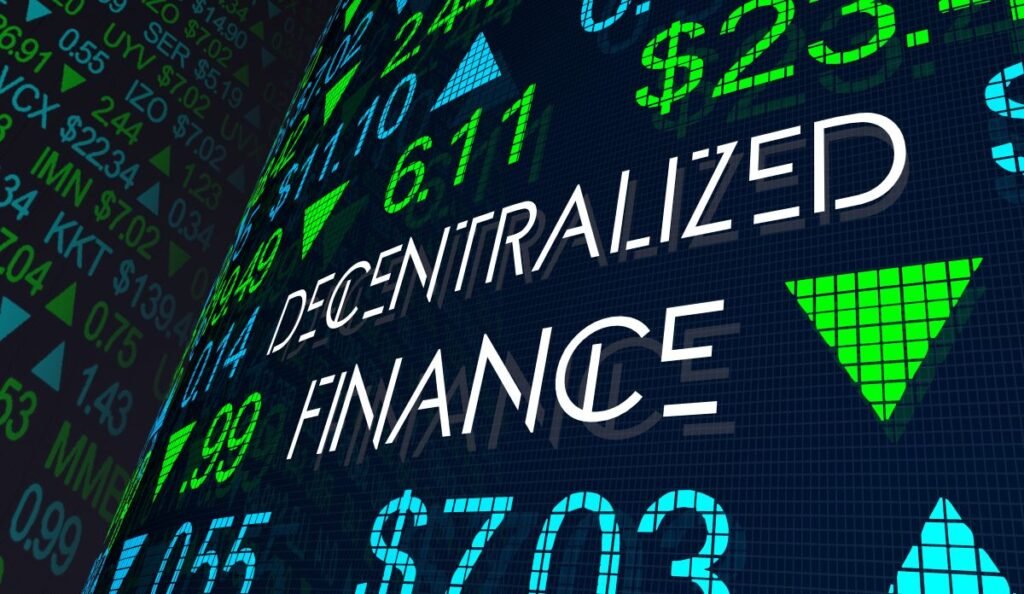U.S. Securities and Exchange Commission (SEC) to Extend Enforcement Crackdown to DeFi and Stablecoins, says Berenberg
In a research report published on Tuesday, investment bank Berenberg stated that the U.S. Securities and Exchange Commission (SEC) is likely to expand its enforcement crackdown to decentralized finance (DeFi) and stablecoins. This move could potentially target two of the largest stablecoins by market cap, namely Tether (USDT) and USD Coin (USDC), which together account for a value of $110 billion.
Stablecoins are blockchain tokens that are pegged to price-stable assets, such as fiat currency. The most popular stablecoins are those that track the U.S. dollar and are backed by a combination of cash and short-term U.S. Treasury bills.
According to Berenberg analysts led by Mark Palmer, if the SEC were to target USDC and USDT, it would be focusing on “the stablecoins that serve as the lifeblood of decentralized finance.” They suggest that this could be a priority for the SEC if it intends to undermine DeFi’s potential as an effective alternative to regulated exchanges and lenders.
Earlier in April, the U.S. Treasury Department published a report highlighting the risks posed by DeFi to national security. The report emphasized the lack of appropriate sanctions and money laundering controls within the industry, which could enable illicit actors such as ransomware groups, scammers, and drug traffickers to transfer and launder their illicit proceeds using DeFi services.
In response to the perceived risks, the SEC reopened a comment period later that month to propose modifications to the definition of “exchange” under existing laws. This move aims to subject DeFi to traditional finance regulations. SEC Chairman Gary Gensler stated that investors in the crypto markets should receive the same protections provided by securities laws in other markets.
Berenberg’s report also suggests that an attack on USDC could potentially harm Coinbase, the largest centralized cryptocurrency exchange in the United States. In the first quarter of 2023, approximately 27% of Coinbase’s net revenue ($199 million) was generated through its USDC reserves. Coinbase is currently facing a lawsuit filed by the SEC for alleged securities law violations, including the listing of crypto securities and the failure to register its staking program as a security. Although USDC has not been directly named in the lawsuit, Coinbase maintains that it is not a security.
In a separate lawsuit against Binance filed the day before, the SEC alleged that Binance USD (BUSD) is a security. BUSD, issued by Paxos, is the third-largest stablecoin and operates in a similar manner to USDC.
Michael Saylor, the executive chairman of MicroStrategy, expressed concerns about stablecoins during an interview with Bloomberg last week. He argued that there is no viable path forward for non-Bitcoin cryptocurrencies in the United States. Berenberg’s report agrees with Saylor’s sentiments and states that MicroStrategy, which currently holds around 140,000 Bitcoin (BTC), is well-positioned to outperform the market. The report also predicts a greater focus on Bitcoin in the future of the crypto industry.
In conclusion, the U.S. Securities and Exchange Commission is expected to broaden its enforcement efforts to include decentralized finance and stablecoins. The potential targets of this crackdown could be the two largest stablecoins, Tether (USDT) and USD Coin (USDC). By scrutinizing these stablecoins, the SEC aims to address the crucial role they play in the decentralized finance ecosystem. Moreover, the implications of such actions may extend to major cryptocurrency exchanges like Coinbase.

